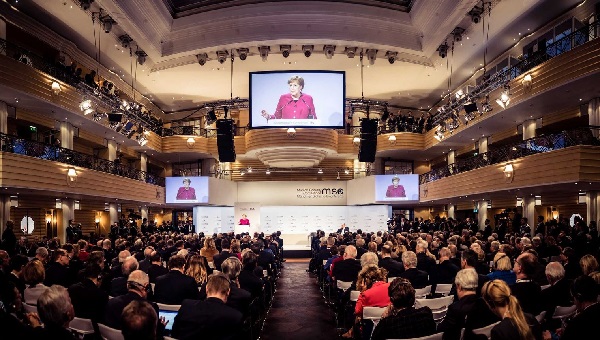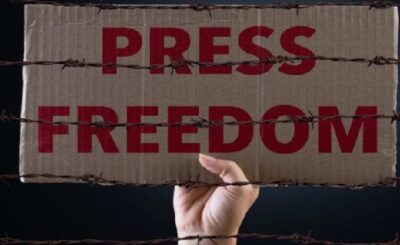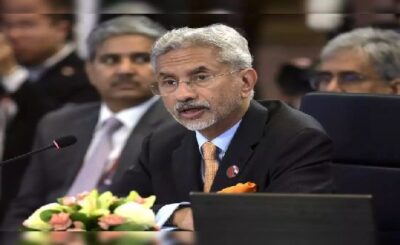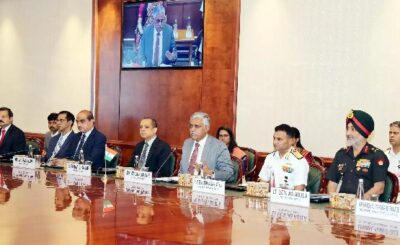-: R Muthu Kumar:-
Munich Security Conference (MSC) 2024 that concluded recently was an unique opportunity for high-level debates on the world’s most pressing security challenges including Ukraine crisis and Israel strikes. But no solution was attainable from the start! This year, at the 60th Munich Security Conference two of the most talked-about people weren’t even present.
That included former US President Donald Trump and of course Russia’s President Vladimir Putin, who is currently being targetted by American and European leaders.
This year Russia, as well as Iran, weren’t invited by the organisers for the reason that they would not allow orderly process of presentations which occording to them will hinder meaningful dialogue!
US delegates in Munich, including Vice President Kamala Harris, were at pains to insist that the US and President Joe Biden would not abandon Ukraine, nor America’s leadership in global affairs.
But with US elections just nine months away, Trump is already shaping the polarised political debate in Washington and reviving anxiety that he could pull the US out of the NATO military alliance and other international commitments.
It is not the first time that the West has found itself grappling with uncertainty and unease. Indeed, the Ukraine, Israel conflicts are making of American and European leaders concerned as well as uneasy as they are largely responsible for the instability and outbreak of hostilities that have shattered world peace.
The Global South received special attention in this year’s security assessment. Since last year, the Munich Security Conference has placed a greater emphasis on Global South countries. One contributing element is the recognition of the Global South’s weak support for the West’s approach to Ukraine.
“Lose-Lose?” was the maxim of this year’s gathering, at a time of deepening geopolitical tensions and jarring economic uncertainties.
The MSC’s annual report warned that it could give rise to “lose-lose” dynamics among Governments, “a downwards spiral that jeopardises co-operation and undermines the existing international order”.
This year’s MSC marked a record attendance: more than 900 participants including some 50 heads of state and government from around the world, more than 100 ministers, as well as representatives of think-tanks, non-governmental organisations and leading businesses.
Top spooks, feminist Foreign Ministers, climate warriors, Iranian activists, weapons experts, technology wizards and more – all gathered for their own get-togethers on public stages and in private rendezvous and hushed huddles.
It all underlined how the world’s understanding of “global security” keeps shifting shape.
And of course Ukraine’s President Volodymyr Zelensky seized the opportunity to go all out against Russia! He explained that a decision to pull back troops from the eastern frontline city Avdiivka last week was made to “save our soldiers’ lives”. “In order to avoid being surrounded, it was decided to withdraw to other lines. This does not mean that people retreated some kilometres and Russia captured something, it did not capture anything,” he said.
Russian forces declare that they have taken complete control of the Ukrainian city of Avdiivka.
Later speaking at the Munich Security Conference in Germany he clearly said that “We are just waiting for more weapons that we are short of, we are short of it, I am telling you frankly,” he said.
Zelenskyy also pushed for countries to give Ukraine longer-range weapons, saying when Ukraine is given these it will depend less on the actions of the troops.
Zelensky urged for more air-defense systems, saying that “once Ukraine unblocks the sky” it will not only push Russia back but this will also allow it repatriate “millions of Ukrainians.”
“We expect to see what has been promised, what we have agreed upon. … Where we had our air defense systems people would come back, they will bring back the economy to a certain town or city. … Where we have air defense systems Russia will immediately move back because otherwise it will lose its aircraft,” he said.
The battle for control for Ukraine’s Avdiivka has been ongoing since 2014, in separatist battles preceding the current Russia-Ukraine war.
Zelesnkyy refused to speak publicly about debates in the US parliament over a bill, allocating a $60-million aid to Ukraine, noting that the US “did a lot for Ukraine.”
The Ukrainian president also invited US presidential hopeful Donald Trump to visit Ukraine, adding that if Trump wants, he can even take him to the frontline.
“I invited him publicly but it depends on his wishes. … If Mr. Trump comes I am ready to go with him to the frontline. I think if we are in dialogue how to finish the war, we have to demonstrate people who are decisionmakers,” he said.
Asked about his expectations on Ukraine’s NATO accession, Zelenskyy said, “It would be a fair thing to do,” but added that a series of bilateral security guarantees with countries such as the UK, Germany and France would also help.
“As to the invitation to join NATO, that is our goal, our goal is to become a NATO member state. I believe that we deserve that. … I think it would be a fair thing to do. We will do our best to make sure that Ukraine is becoming close to the alliance,” he said.
Over the decades, this forum – born in 1963 in a Cold War quest for peace and prosperity – has often been a venue for real-time diplomacy, too.
But in a year marked by worry over “lose-lose dynamics” Munich was a place for a lot of talking and taking stock as the world nervously wonders where the next blows will fall.
Amid growing geopolitical tensions and rising economic uncertainty, many governments are no longer focusing on the absolute benefits of global cooperation stands exposed.








